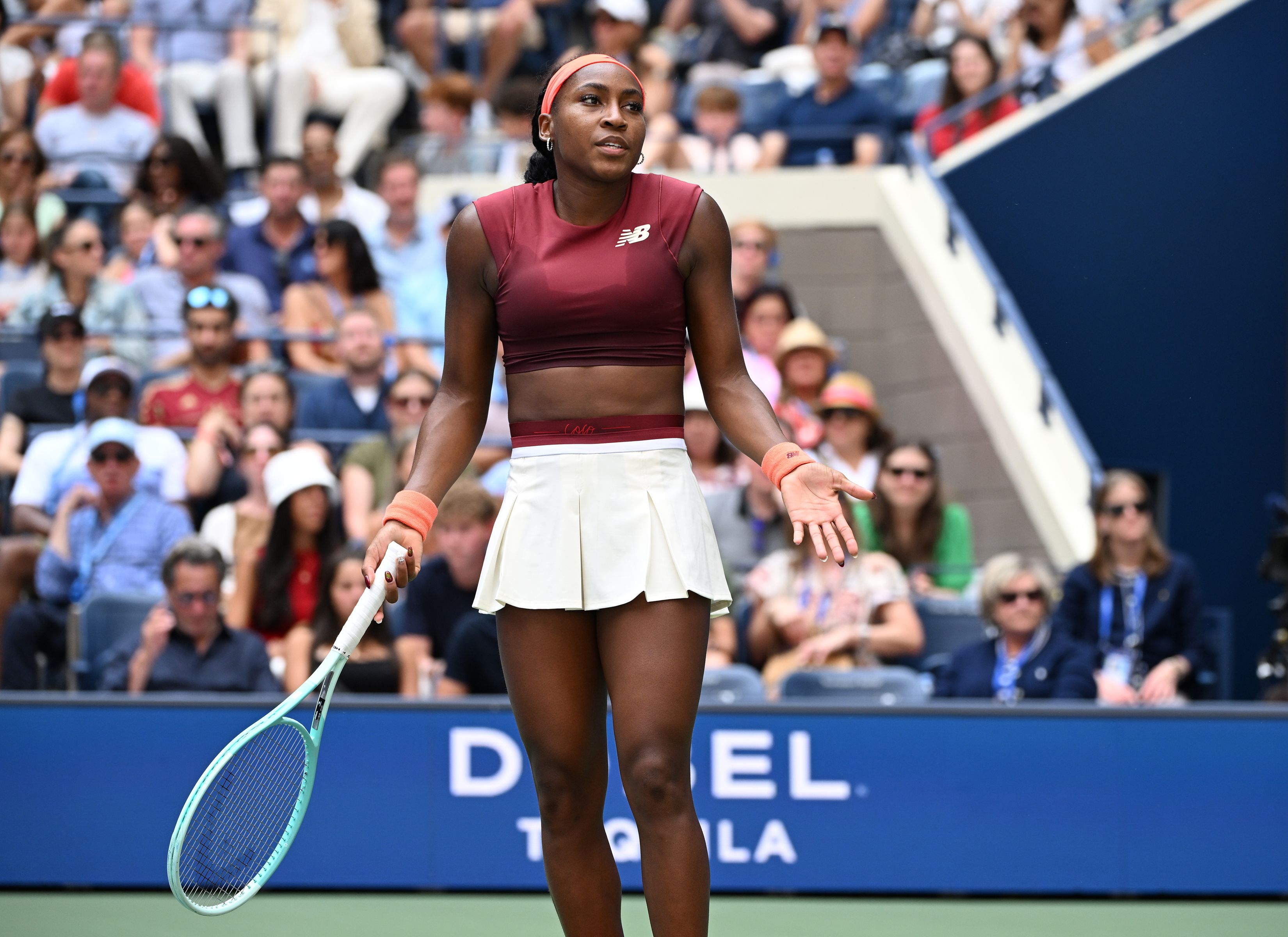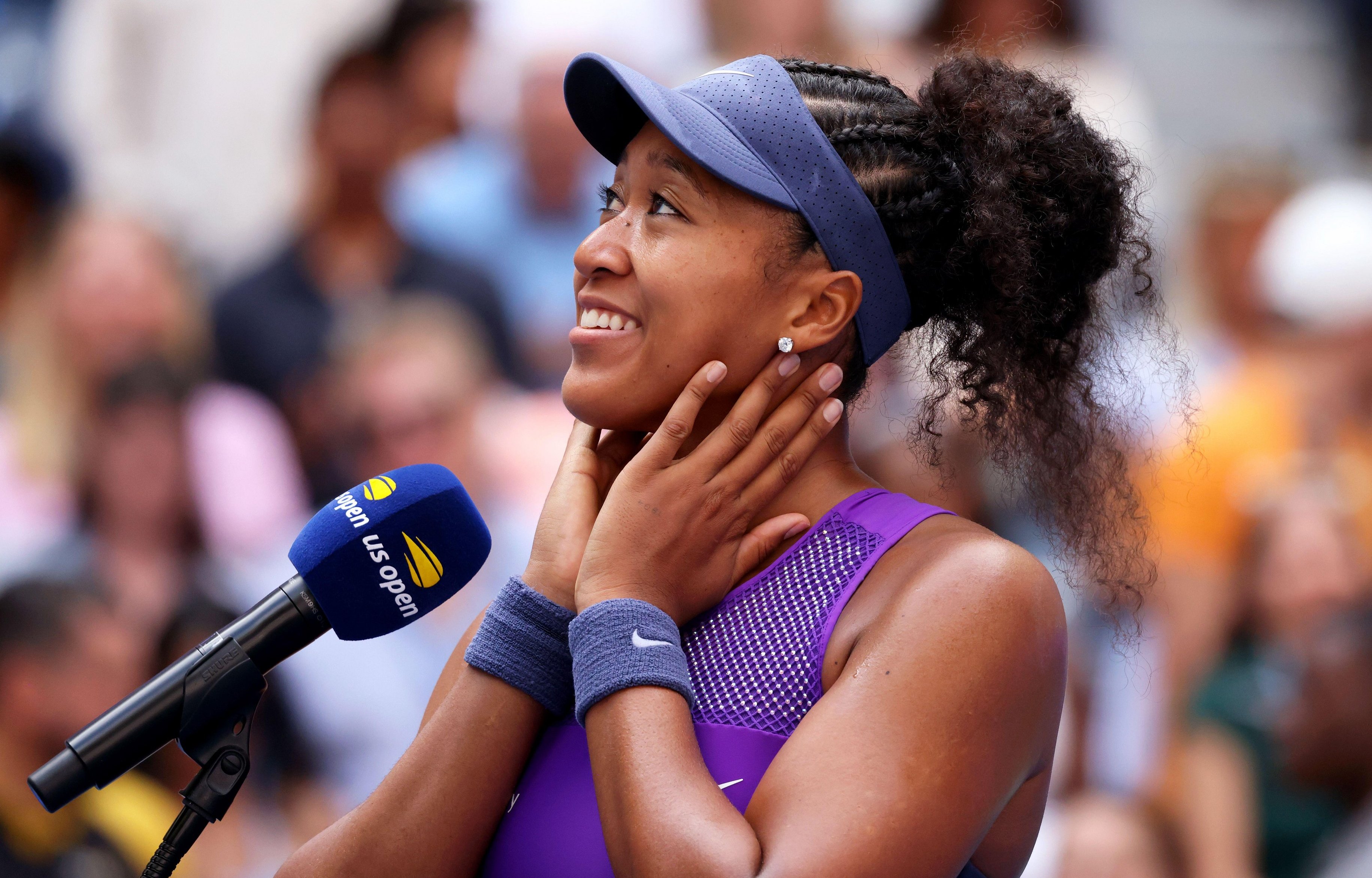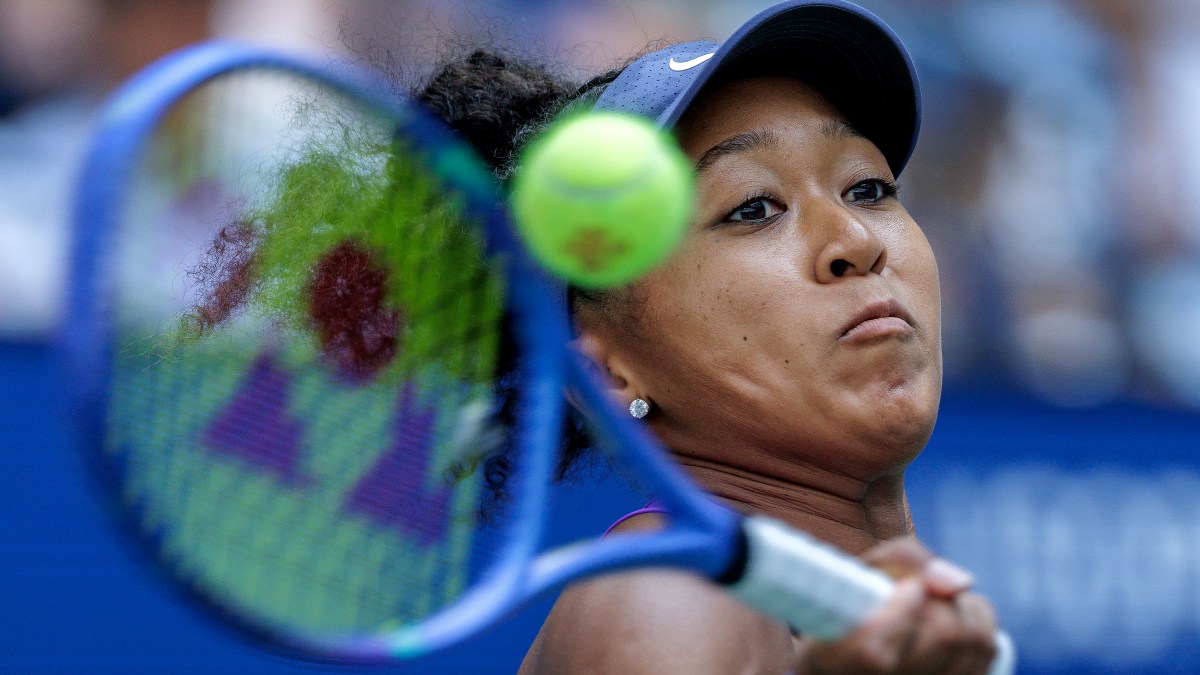Naomi Osaka has made no secret of her mental struggles since she became a mother in 2023, but it does appear as if she is finally turning a corner this summer. A first grand-slam quarter-final for four years now awaits after the 27-year-old from Japan comfortably dispatched Coco Gauff at the US Open.
This was billed as one of the most anticipated showdowns of the tournament so far between two of the biggest stars in the women’s game. Gauff, 21, was the home favourite as the leading American female player, while Osaka, 27, also enjoys much popularity here having grown up in the New York suburb of Queen’s.
As a contest, though, it fell well short of expectations, largely due to a dismal showing from Gauff. Despite being a two-times grand-slam champion, which includes a title here at Flushing Meadows in 2023, she never looked comfortable over the course of 64 minutes on Arthur Ashe Stadium and made a total of 33 unforced errors to Osaka’s 12 in a 6-3, 6-2 defeat.
This concludes a North American hard-court swing to forget for Gauff. Her build-up was far from ideal, having decided to replace her coach Matt Daly with the biomechanics expert Gavin MacMillan, who is best known in the sport for fixing Aryna Sabalenka’s serving issues. Twenty-seven double faults in Gauff’s four matches here suggests that MacMillan needs more time to work his magic.
With Gauff wasting no time in departing the stadium afterwards, Osaka revelled in one of her finest performances in recent years. The four-times grand-slam champion has struggled for consistency since the birth of her daughter, Shai, and began to wonder if she would ever recover her old self on the court. Now she can look forward to her first match in the last eight of a major since the 2021 Australian Open.
“I’m a little sensitive and I don’t want to cry, but I had so much fun out here,” Osaka said. “I was in the stands two months after I gave birth to my daughter watching Coco and I really wanted an opportunity to come back here and play. This is my favourite court in the world and it means so much to me to be back here. I just want to say a big thank you to my team. It hasn’t always been easy but they’ve been by my side so thank you and love you.”
Before the tournament Osaka candidly revealed her mental state in the aftermath of Shai’s arrival. Speaking on her new television documentary, The Second Set, she confirmed that she had been diagnosed with “extremely bad postpartum [depression]”.

The match did not live up to the hype largely owing to a poor display from Gauff
SHUTTERSTOCK EDITORIAL
“I didn’t know how to deal with it that well,” Osaka said. “Prior to giving birth, a bunch of different people had told me about postpartum. But truthfully, I had thought that since I was so aware of it, I could somehow avoid the symptoms altogether.
“In no world would I ever want my daughter to think that her birth is nothing less than the biggest gift I have ever received. But during those early months, I felt like a shell of myself at all moments of the day. I no longer knew who I was any more. It felt like everyone else had moved on and they were living in colour. Meanwhile, my world was stuck in grey.”
Osaka was particularly despondent about her tennis this summer. She left her press conference in tears after losing in the first round of the French Open, and was again downbeat at Wimbledon after a third-round exit.
The turning point came at last month’s Canadian Open in Montreal, the week after she had lost to Emma Raducanu in the second round of the Washington Open. Osaka saved two match points to beat Liudmila Samsonova in the second round, before going on to finish runner-up, and has now put together ten wins in her past 11 matches.

Osaka will now face Karolina Muchova for a place in the semi-finals on Tuesday
ALAMY
“I thought since then anything is possible,” Osaka said. “You just have to try your best and have a smile on your face.”
Given her own struggles on the court, Osaka expressed sympathy afterwards for Gauff, who was beset by tension, an unreliable serve and forehand, and sluggish footwork. She also did not bring up a single break point on the Osaka serve.
“I look up to her a lot,” Osaka said. “I think the way she conducts herself is really special and I feel to be such an amazing role model at such a young age is a gift and a talent she has. I have all the respect in the world for her.”
Iga Swiatek also eased through with a 6-3, 6-1 victory against Ekaterina Alexandrova. The 24-year-old from Poland, who won Wimbledon this year, is the youngest player to reach all four grand-slam women’s singles quarter-finals in the same season since an 18-year-old Maria Sharapova in 2005.
In the men’s singles, Jannik Sinner continued the defence of his title by cruising through to the quarter-finals. The world No1 from Italy needed only 81 minutes to see off Kazakhstan’s Alexander Bublik 6-1, 6-1, 6-1.

